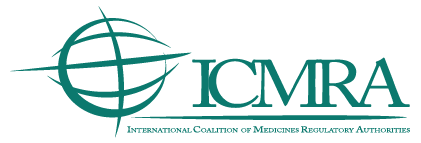Global regulators work towards alignment on policy approaches and regulatory flexibility during COVID-19
In a high-level meeting on COVID-19 policies, organised by EMA under the umbrella of the International Coalition of Medicines Regulatory Authorities (ICMRA), international regulators from around the world discussed strategic issues and regulatory approaches to ensure a coordinated response to the pandemic. They stressed the need for alignment on pre- and post-authorisation regulatory requirements to facilitate the rapid development, evaluation and availability of medicines for the treatment and prevention of coronavirus disease.
The participants focused on regulatory considerations and challenges related to the development of medicines and vaccines for the prevention and treatment of COVID-19. They raised concerns about multiple small, rather than large clinical trials and stressed the need for the development of priority criteria for planned trials. In addition, they called for the inclusion of vulnerable or neglected populations, such as pregnant women, children and elderly people in COVID-19 studies. The regulators reiterated that it is crucial to align on common study protocols to ensure that the results meet regulatory requirements and allow the evidence to be used to support the approval of medicines or vaccines.
Regulators also discussed the development, evaluation and use of diagnostic tests in the fight against coronavirus disease. They shared insights into diagnostic accuracy and reliability of serological tests for COVID-19 used in different countries. Meeting participants agreed to make, in collaboration with WHO, an ICMRA inventory of approved tests for COVID-19 to ensure a comparability of the results and to align regulatory approaches.
In the context of the pandemic, international regulators have implemented various extraordinary measures to mitigate supply issues with medicines used for the treatment of COVID-19 patients. For instance, EMA shared information on the work of the EU Executive Steering Group on Shortages of Medicines Caused by Major Events, which provides strategic leadership for urgent and coordinated action on shortages within the European Union and has launched the iSPOC (industry single point of contact) system to fast-track information exchange on shortages since April. In addition, EMA presented the guidance on adaptations to the regulatory framework to address challenges arising from the COVID-19 pandemic that has been jointly developed by the European Commission, EMA and the European medicines regulatory network. Other ICMRA members also presented similar policies. All participants committed to continue the exchange of information on high-level regulatory flexibilities to enhance the efficiency and effectiveness of regulatory decision-making during the current pandemic.
The discussion was moderated by Guido Rasi, Chair of ICMRA and EMA’s Executive Director. This was the second in a series of bi-weekly ICMRA meetings organised to allow medicine regulators worldwide to exchange information and build synergies for expediting COVID-19 medicine and vaccine development and approval and for preventing and mitigating medicine shortages. These strategic discussions build on the knowledge and experience gained from the series of ICMRA workshops on COVID-19 medicine development held in March and April 2020. EMA and FDA are taking it in turns to chair these meetings.
Notes
- Serological tests detect antibodies or antibody-like substances in the blood that appear when the body is responding to certain diseases.
- More information on the work of the European Medicines Agency can be found on its website: www.ema.europa.eu

